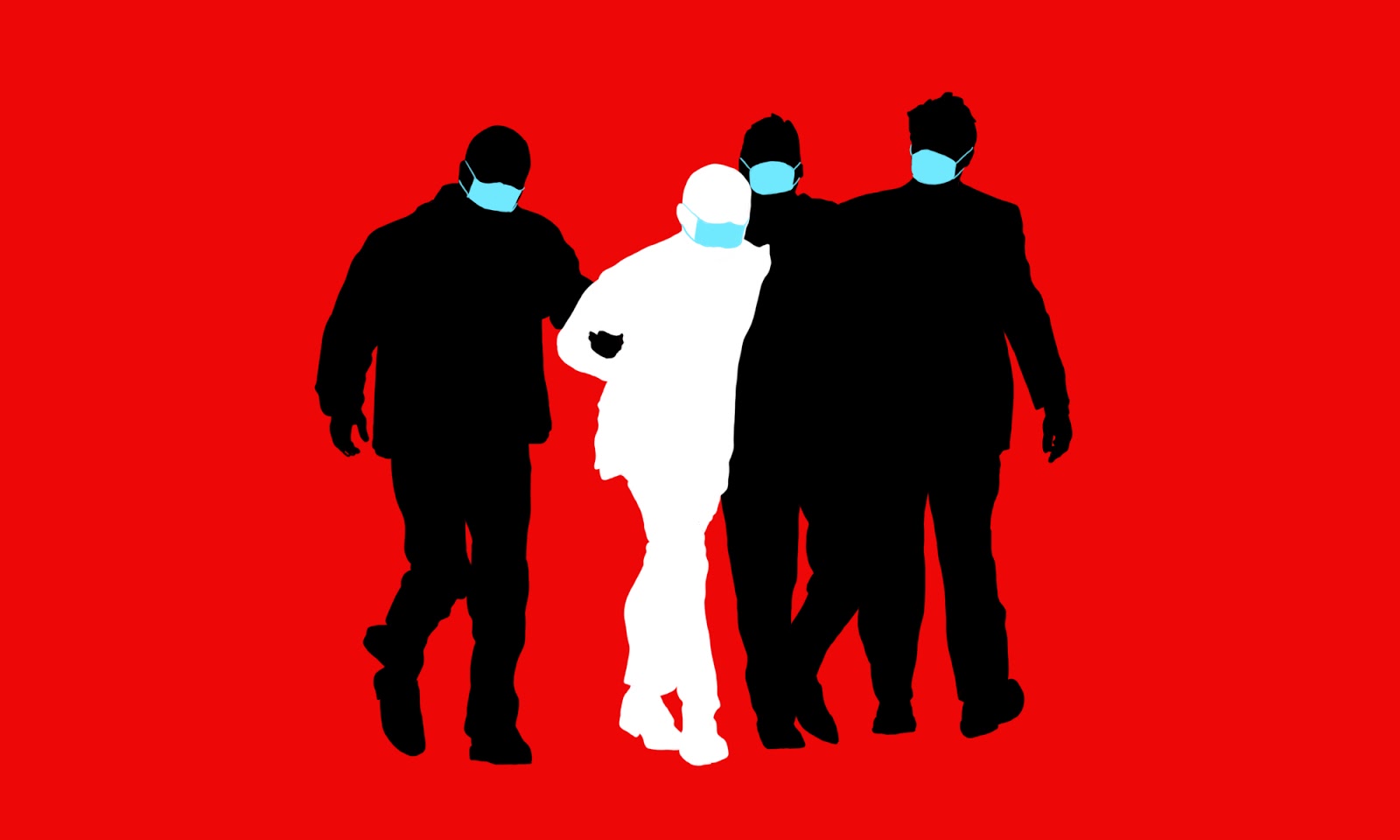Police arrest media baron Jimmy Lai in a ‘direct assault on Hong Kong’s press freedom’
Hong Kong’s most outspoken pro-democracy tycoon, Jimmy Lai, was arrested on charges related to the city’s new national security law imposed by Beijing. About 200 police officers also conducted an unprecedented raid of Lai’s news outlet, Apple Daily.

Media baron Jimmy Lai Chee-Ying (黎智英 Lí Zhìyīng) is unique among Hong Kong’s tycoons in his willingness to take on China’s government. Lai made his fortune in fashion before the 1997 Hong Kong handover, and started the tabloid and pro-democracy news outlet Apple Daily in 1995. The newspaper is owned by Next Digital, which publishes newspapers and websites in Hong Kong and Taiwan.
- Lai was interviewed by The China Project in June, and you can get a sense of his willingness to speak his mind just from the headline of the interview: ‘Until the Wuhan virus hit, the U.S. was pulling away from China and doing great’ — Jimmy Lai.
Lai and eight others were arrested in the past 24 hours for charges related to the new national security law imposed on Hong Kong by Beijing. The New York Times reports that the charges against Lai may go further:
On Monday, police officers led him out of his mansion in handcuffs and, hours later, more than 200 officers filed into the newsroom of his newspaper, Apple Daily, and rifled through desks…
The police also arrested Mr. Lai’s two sons, who are not involved in his media business, and four executives from his company, Next Digital, including its chief executive, Cheung Kim-hung…
Mark Simon, a senior executive with Next Digital, said that Mr. Lai’s two sons, in addition to facing national security charges, were also being investigated for unspecified violations of corporate law. Given the lack of involvement by Mr. Lai’s sons in Next Digital, the police actions suggested that the authorities were investigating Mr. Lai’s private investments.
The two others arrested, the freelance journalist Wilson Li and activist Andy Li, do not appear to be connected to Lai’s media company or business.
Lai and Apple Daily saw the writing on the wall even before the national security law was announced. Reuters reports on the details of the unprecedented police raid, and adds:
Two months before, in an interview with Reuters…Lai said he was bracing for just such a day: shifting assets abroad and making preparations with lawyers…
Months before the law took effect, the newspaper had shredded documents, uploaded digitized files to overseas servers and safeguarded sources, two senior reporters told Reuters…
“The arrests, and the raid on the newsroom, are a direct assault on Hong Kong’s press freedom and signal a dark new phase in the erosion of the city’s global reputation,” the Foreign Correspondents’ Club, Hong Kong, wrote in a statement.
- “Mainland and Hong Kong officials have given repeated assurances that the new law will target only a tiny number of offenders and that Hong Kong’s cherished freedoms, including freedom of the press, would go unhindered,” the statement continued. “Today’s police action upends those assurances.”
- The FCCHK also raised concern about a new Hong Kong Police Force practice of arbitrarily blocking some media groups from covering press briefings. “If the police are allowed to decide who counts as a legitimate journalist, it will mark the end of press freedom in Hong Kong,” the statement concludes.
See also:
-
Jimmy Lai arrested under national security law in Hong Kong / Xinhua
Chinese state media coverage of the arrests, calling Lai an “instigator of the Hong Kong riots.” Xinhua also has a readout in Chinese from the Hong Kong and Macau Affairs Office of the State Council, which suggests Lai’s crimes under the national security law include:
He made an arrogant call to “fight for the United States” [为美国而战 wèi měiguó ér zhàn], participated in plotting, organizing, and mobilizing a series of illegal protests, used his media to create and spread rumors, incite and support violence, and provided financial support for anti-China rioters and “Hong Kong independence” forces.
-
Activists pile in to Next Digital stock following Jimmy Lai’s arrest / FT (paywall)
“Shares in the Hong Kong media group controlled by Jimmy Lai nearly tripled on Monday following the arrest of the pro-democracy tycoon, as activists piled in to the stock in a display of solidarity.” -
Joint statement on the erosion of rights in Hong Kong / United States Department of State
Issued before the arrests and raid. Signed by the foreign ministers of Australia, Canada, New Zealand, and the U.K., and the U.S. Secretary of State.






